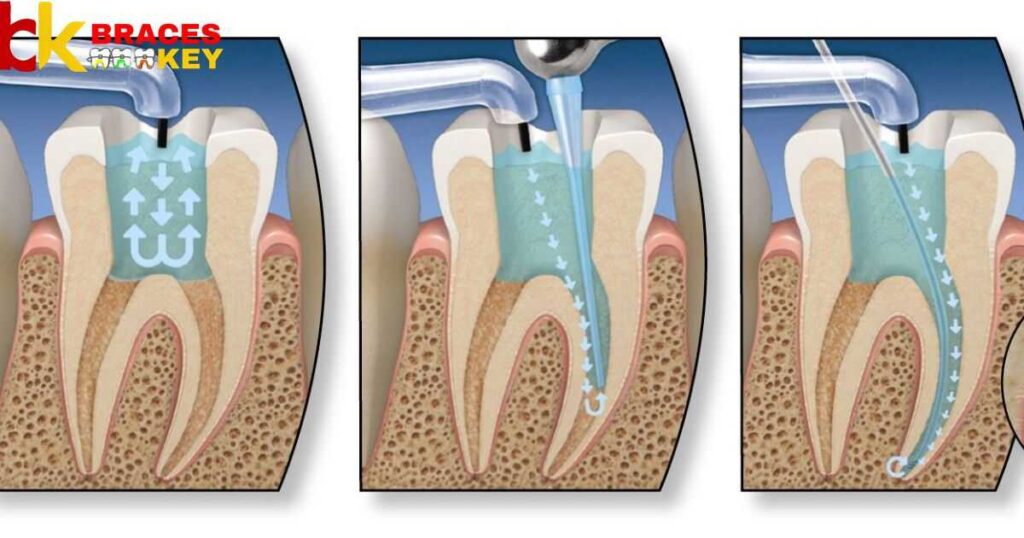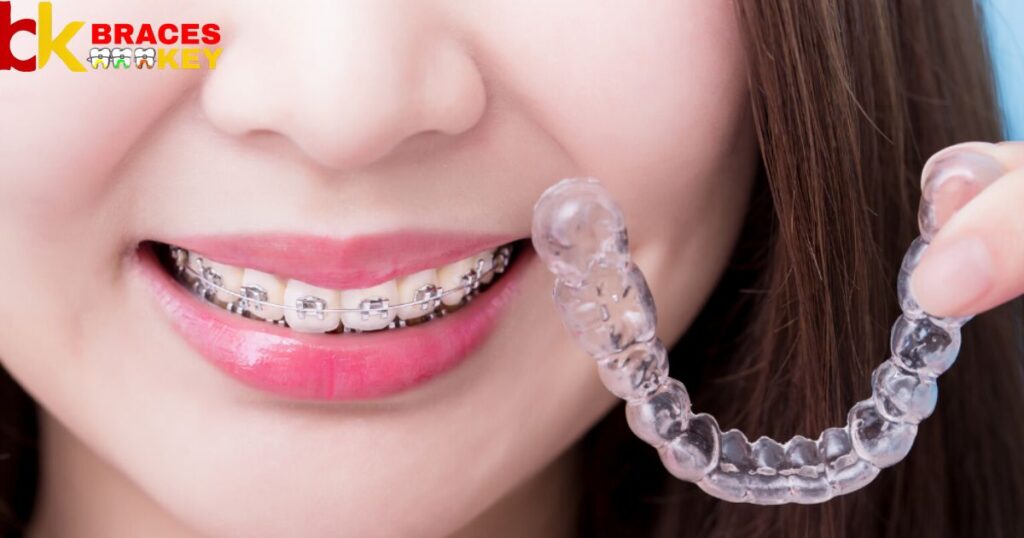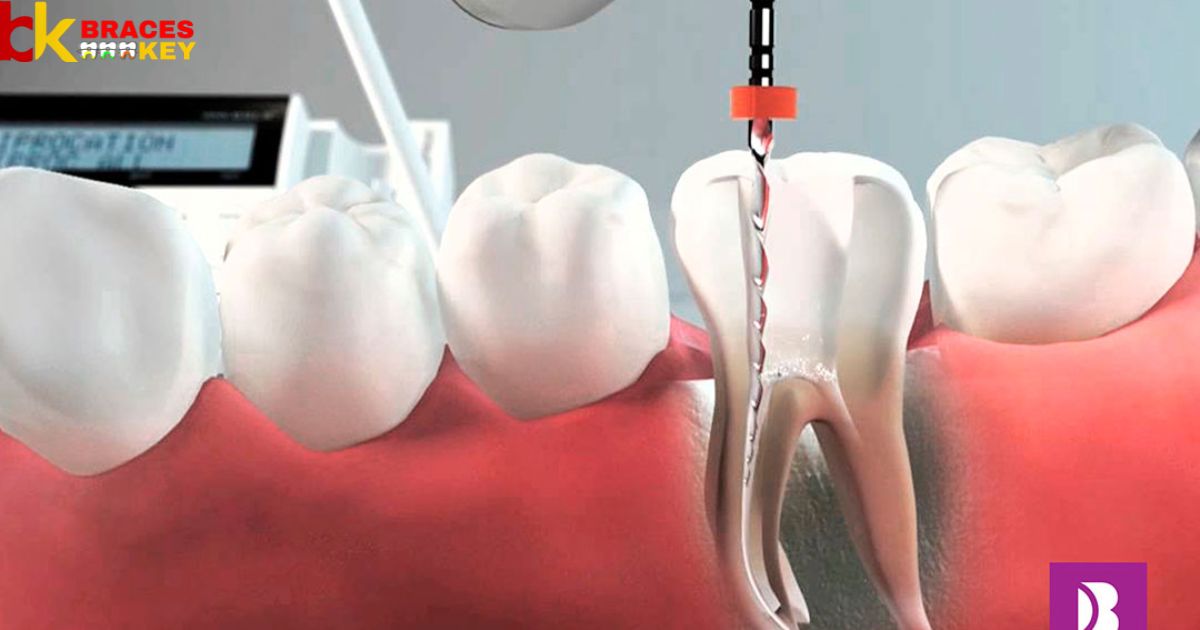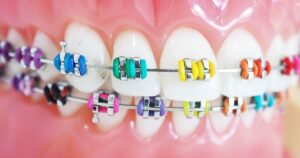Getting braces after a root canal is possible, but it requires careful consideration. Consult with your dentist to ensure the timing aligns with your oral health needs, as a healed root canal provides a stable foundation for successful orthodontic treatment.
Navigating the realm of dental care, many wonder Can you get braces with a root canal? This fusion of orthodontics and endodontics introduces a captivating dimension to oral health. Delving into the intricacies, we explore how these two procedures seamlessly align to answer the question at the heart of the matter.
When considering braces after a root canal, it’s essential to consult both your orthodontist and endodontist. They will collaboratively assess your oral health, ensuring that the previous root canal treatment aligns with the orthodontic plan for the most effective and harmonious results in your dental care journey.
Braces Cause Root Canals
Braces, while often beneficial for alignment, can occasionally lead to complications like root canals. The pressure exerted by braces can, in rare cases, trigger inflammation or damage to the roots, necessitating root canal treatment. This occurrence, though uncommon, underscores the importance of regular monitoring and expert orthodontic care to mitigate potential risks associated with braces, even when it comes to Can You Get Braces With A Root Canal? during orthodontic treatment.
Despite their corrective benefits, braces might inadvertently prompt the need for root canal therapy. The force exerted to straighten teeth may, in isolated instances, create stress on tooth roots, prompting infection or damage. It’s crucial to maintain open communication with your orthodontist to promptly address any discomfort or unusual sensations.
Root Canal Treatment
Root canal treatment is a dental procedure aimed at addressing infection or damage within the tooth’s pulp, often caused by deep decay or trauma. During the process, the infected tissue is removed, the area is thoroughly cleaned, and the tooth is sealed to prevent further infection. It’s an effective way to alleviate pain and save a tooth from extraction while preserving your natural smile.
Braces Cause Root Damage
Research suggests that while braces can slightly affect roots during treatment, it’s minimal and manageable with proper orthodontic care. With advancements in orthodontics and regular monitoring, the risk of significant root damage is significantly reduced. Orthodontists prioritize techniques that prioritize both alignment and long-term dental health to mitigate any potential concerns.
Root Canal Painful
Experiencing a root canal procedure can vary from person to person; while discomfort is possible during and after the procedure, advancements in techniques and anesthesia have significantly minimized pain. The procedure itself is managed well with local anesthesia, and any post-treatment discomfort is manageable with over-the-counter pain relief prescribed by your dentist.
Root Canals and Braces

Root canals and braces represent distinct yet essential facets of dental care. Root canals are a procedure aimed at addressing infected or damaged tooth pulp, offering relief and preserving the tooth. On the other hand, braces serve to align teeth, rectifying misalignments and enhancing both function and aesthetics. While root canals tackle internal issues, braces focus on external alignment, both contributing significantly to oral health.
The realm of dental procedures encompasses diverse needs, including root canals and braces, each serving a specific purpose. Root canals alleviate discomfort caused by infections deep within the tooth, while braces correct misalignments, enhancing overall oral function and appearance. Despite their differences, both treatments play pivotal roles in maintaining dental health, catering to distinct yet interconnected aspects of dental care.
Alternative Treatment Options
Exploring alternative treatment options can be a game-changer in healthcare. From acupuncture’s precision to herbal remedies’ gentle potency, these paths offer diverse approaches. Integrative therapies, like mindfulness or chiropractic care, provide holistic solutions. Embracing these choices can empower individuals in their healing journey.
Innovative therapies beyond conventional medicine broaden the spectrum of care. Nutrition-based interventions, and energy healing techniques showcase promising outcomes. Tailoring treatments to individual needs fosters a personalized and effective healing process. Embracing these diverse options nurtures a comprehensive approach to well-being.
The Compatibility of Braces with Root Canal Treatments
The intersection of braces and root canal treatments often raises concerns about compatibility. While braces generally don’t interfere with the root canal procedure itself, their presence can complicate some aspects of oral care. Routine adjustments for braces might need coordination with the timing of the root canal therapy to ensure both treatments align without causing discomfort or hindering the healing process.
Balancing the need for braces with ongoing or future root canal treatments requires careful planning. Orthodontists and endodontists collaborate to create a synchronized treatment plan, considering the positioning of braces and the timing of root canal procedures. This coordination aims to optimize oral health outcomes, ensuring the effectiveness of both treatments while minimizing potential disruptions or complications.
Root Canal Tooth Hurts With Braces
When braces and root canal pain collide, it’s a whirlwind of discomfort. The pressure from braces can sometimes exacerbate the sensitivity in a tooth that’s undergone a root canal. The clash feels like an orchestra playing discordant notes, a twinge that jolts through every bite, making each meal a cautious dance.
Combining the agony of a root canal with the constant presence of braces creates a unique sensation like a small storm within the mouth. It’s as if the careful work done on the tooth is at odds with the adjustments being made to align the smile. The resulting ache becomes a reminder of the intricate balancing act within the dental realm.
Get Braces For Root Canal

Getting braces before a root canal can be daunting. The anticipation of wearing braces while undergoing a root canal procedure can add an extra layer of concern. However, braces can provide the necessary support for the teeth before and after the root canal, aiding in alignment and stability. It’s essential to follow the dentist’s advice on care and adjustments to ensure a smoother experience.
The prospect of braces preceding a root canal treatment might seem overwhelming initially. Yet, braces serve a crucial purpose in aligning teeth, facilitating the success of the root canal. They ensure the teeth are well-positioned for the procedure and assist in post-treatment alignment. With proper guidance from your orthodontist and dentist, this combined approach can lead to a healthier and more aligned smile.
I Get Braces Before Root Canal
Getting braces before a root canal was an unexpected twist. The anticipation of dental work doubled with wires now in play. Every chew felt like a precarious feat, navigating around newly placed fixtures. But the hope of a straighter smile outweighed the temporary discomfort.
The convergence of braces and a pending root canal set an odd stage. The snug wires added an extra layer to an already nerve-wracking dental agenda. Swallowing felt like a cautious dance, aware of the braces’ presence. Yet, the promise of dental alignment post-treatment offered solace amidst the dental intricacies.
Root Canal With Braces
Undergoing a root canal while wearing braces is feasible but might require special attention. Your dentist will collaborate with the orthodontist to navigate the procedure safely around the braces, ensuring effective treatment without compromising your orthodontic progress. Clear communication between both professionals is crucial for a smooth and successful dental experience.
Cause Root Canals
Root canals are necessary when the inner part of a tooth, known as the pulp, becomes infected or damaged due to deep decay, cracks, or trauma. This procedure involves removing the infected tissue, cleaning the area, and sealing it to prevent further infection, allowing the tooth to be saved rather than extracted. Regular dental check-ups help detect issues early, reducing the likelihood of needing a root canal.
FAQ’s
Can you get braces with no back teeth?
Braces can be applied even if there are no back teeth, the orthodontist may need alternative methods for anchorage and careful planning to ensure effective treatment.
Should you get a root canal before or after braces?
It’s generally advisable to address root canals before getting braces to ensure a healthy foundation for orthodontic treatment.
How many teeth do you need to lose to get braces?
The number of teeth doesn’t dictate the need for braces; the decision is based on your overall dental alignment and bite.
Is root canal serious?
While it’s a significant dental procedure, a root canal is common and aims to relieve pain by treating infected tooth pulp effectively.
Conclusion
Yes, you can get braces after a root canal. The root canal procedure doesn’t prohibit orthodontic treatment. Consulting both your endodontist and orthodontist is crucial to coordinate care, ensuring proper alignment and addressing dental concerns for a healthy smile.








